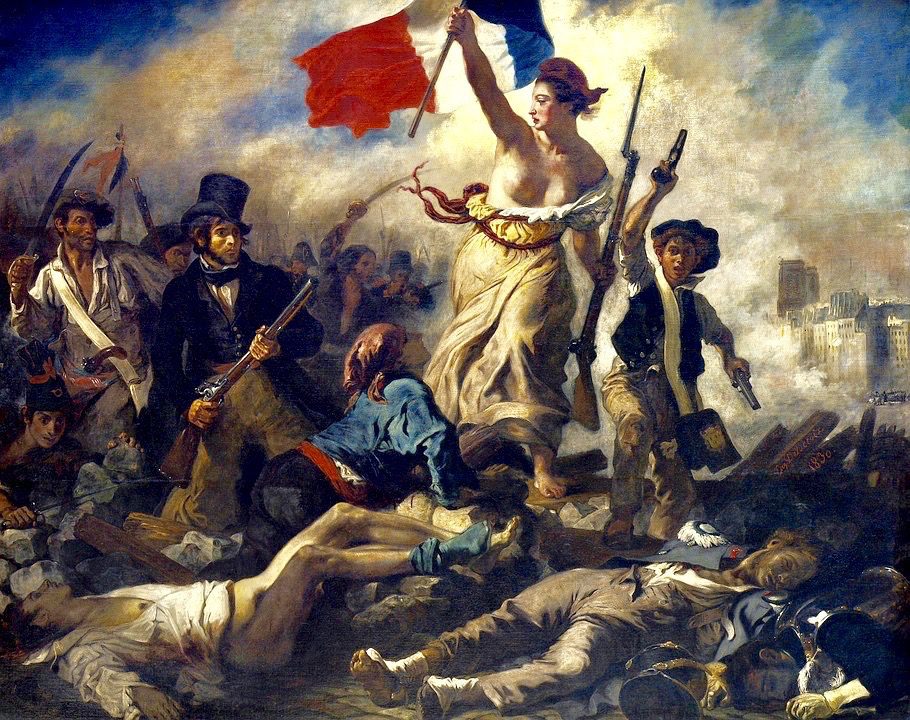The American and French Revolutions were both important events in Western history that transformed their respective countries’ political and social structures. Both were motivated by a desire for independence and a belief that people should have the right to govern themselves. The American Revolution was initiated primarily due to British colonial policies while the French Revolution had more complex causes, including poor harvests and economic stagnation. The American Revolution was characterized by peaceful protests, boycotts, and petitions, whereas the French Revolution was characterized by violence and extensive social upheaval. The outcomes of the two revolutions had significant differences, with the American Revolution resulting in a democratic government and the French Revolution leading to the establishment of a new society founded on equality, liberty, and fraternity.
The American Revolution vs. The French Revolution: A Comparison of Two Key Events in Western History
Introduction
The American and French Revolutions were two essential events in Western history that fundamentally transformed their respective countries’ political and social structures. Both revolutions were motivated by a desire for independence, changes in the social order, and the belief that all people should have the right to govern themselves. Although both events had similarities in terms of the reasons for the revolution and the outcomes, there were significant differences in how the revolutions were implemented and the impact they had on their respective societies.
Background
The American Revolution occurred between 1765 and 1783, whereas the French Revolution took place between 1789 and 1799. The American Revolution arose due to British colonial policies such as the Stamp Act and the imposition of taxes without representation. The colonists were frustrated with the lack of political power and desired more freedom and autonomy. In contrast, the French Revolution was sparked by widespread anger and economic hardship caused by the Ancien Régime’s social hierarchy, which favored the nobility and clergy while putting immense pressure on the common people.
Causes
Even though both revolutions were motivated by a desire for freedom and autonomy, they had different underlying causes. The American Revolution was initiated primarily due to the British government’s policies and control over the colonies’ political and economic affairs. On the other hand, the French Revolution had more complex causes, including poor harvests, high taxes, economic stagnation, and the abuse of power by the monarchy and aristocracy.
Methodologies
Both revolutions had distinct approaches to achieving their goals. The American Revolution was characterized by peaceful protests, boycotts, and petitions. The colonists, led by leaders such as George Washington and Samuel Adams, believed that the British government would eventually recognize their demands for greater autonomy and representation. However, when the British government refused to acquiesce to their demands, the colonists took up arms, leading to the Declaration of Independence and the eventual formation of the United States of America.
In contrast, the French Revolution was characterized by violence, bloodshed, and extensive social upheaval. The French people believed that the entire Ancien Régime needed to be overthrown to create a more egalitarian society. They overthrew King Louis XVI, abolished the monarchy, and executed aristocrats and thousands of others during the Reign of Terror.
Outcomes
The outcomes of the two revolutions had significant differences. The American Revolution resulted in the establishment of a democratic government founded on the rule of law and individual rights. The new nation’s constitution placed limits on the government’s power while protecting individual freedoms such as speech, religion, and property.
In contrast, the French Revolution led to the overthrow of the existing social order and the establishment of a new society founded on equality, liberty, and fraternity. The revolution resulted in the adoption of new laws such as the abolition of feudalism and the Napoleonic Code, which codified individual rights and responsibilities. However, the period of social upheaval had a negative impact on France’s political stability, leading to a succession of unstable governments and the rise of Napoleon Bonaparte’s authoritarian regime.
Conclusion
In conclusion, the American and French Revolutions were both significant events in Western history that had far-reaching consequences for their respective societies. Both revolutions were motivated by a desire for freedom and autonomy but had different underlying causes, methodologies, and outcomes. The American Revolution resulted in the establishment of a democratic government founded on individual rights and the rule of law, while the French Revolution led to the overthrow of the existing social order and the subsequent establishment of a new society founded on the principles of liberty, equality, and fraternity. Despite these differences, both revolutions remain essential events that continue to shape the world we live in today.
